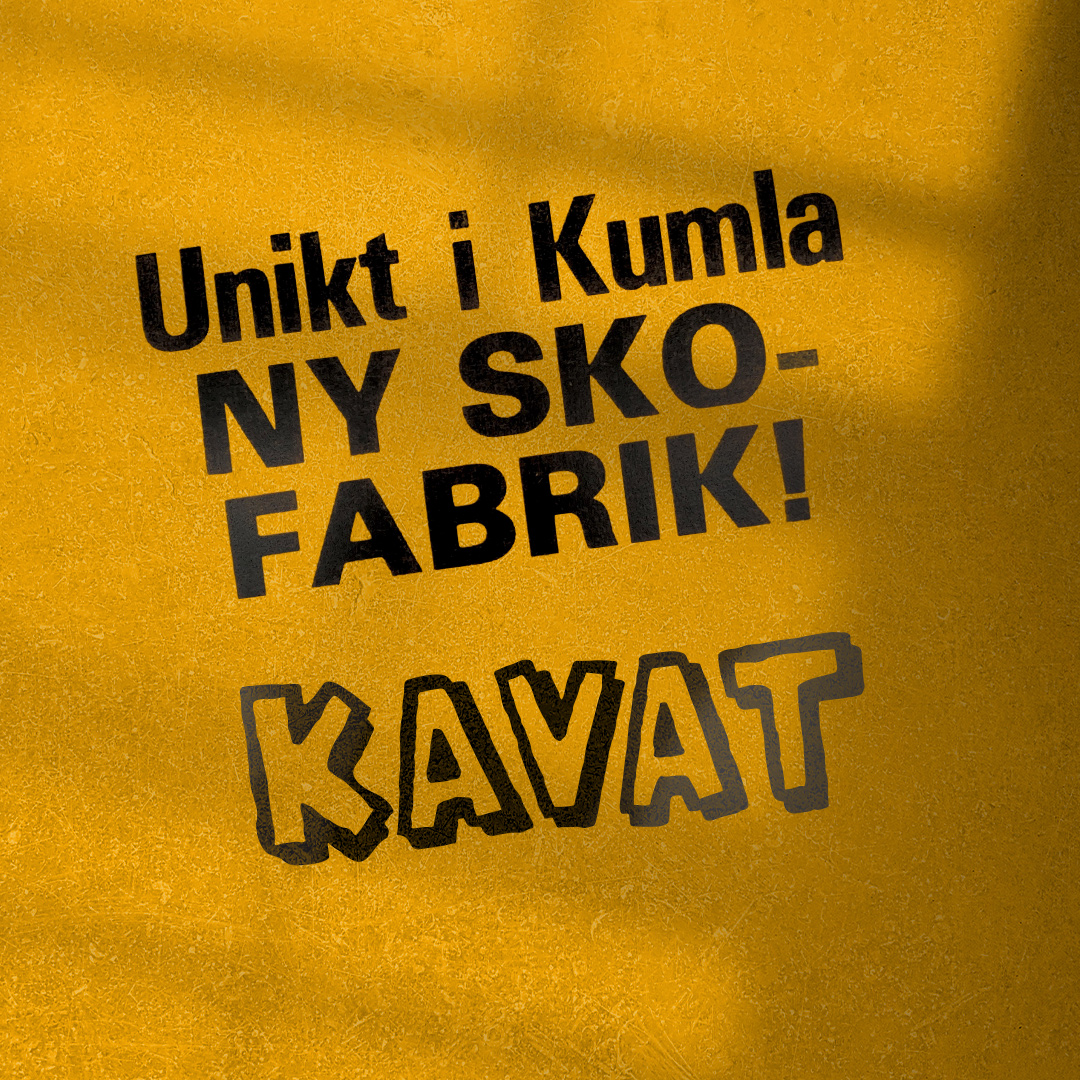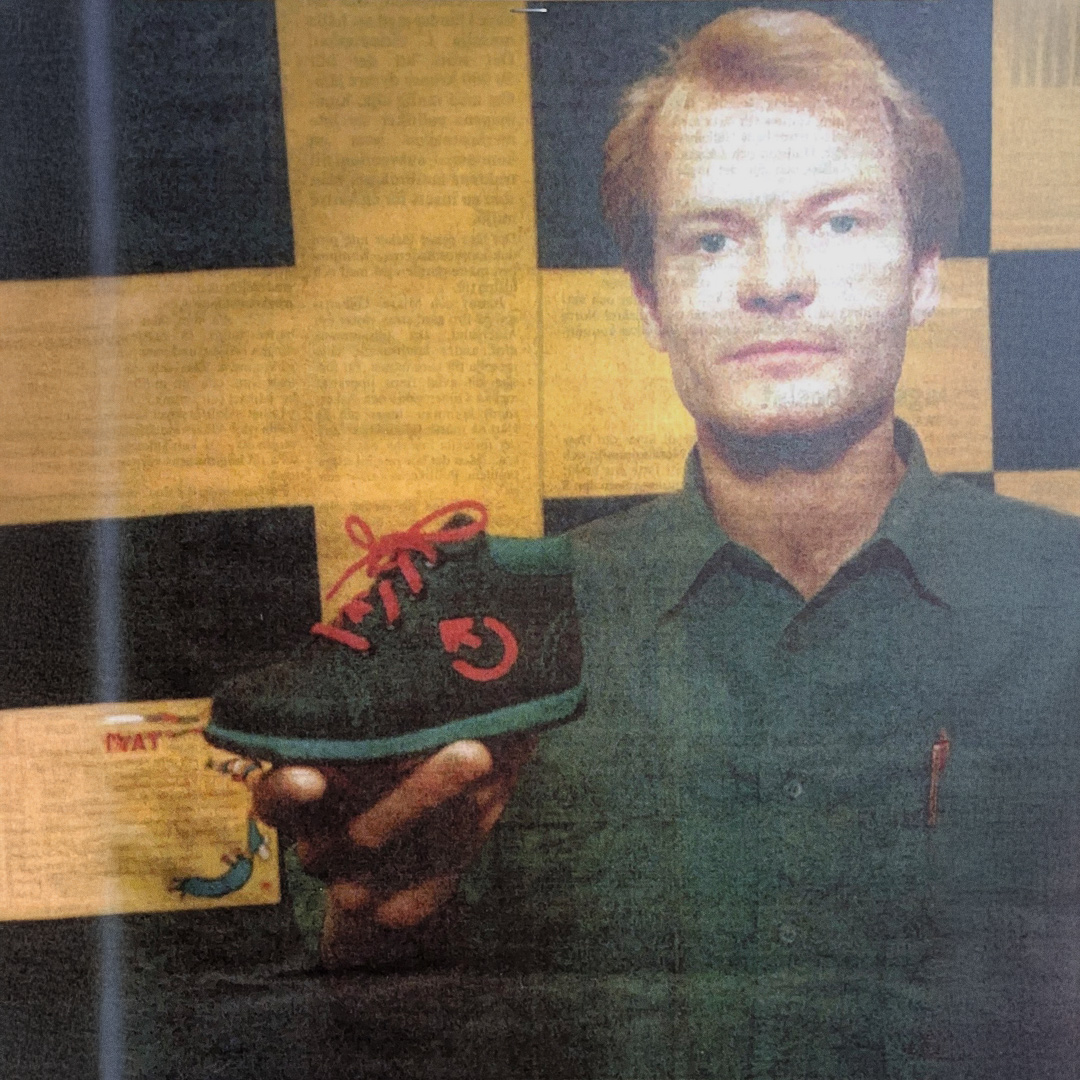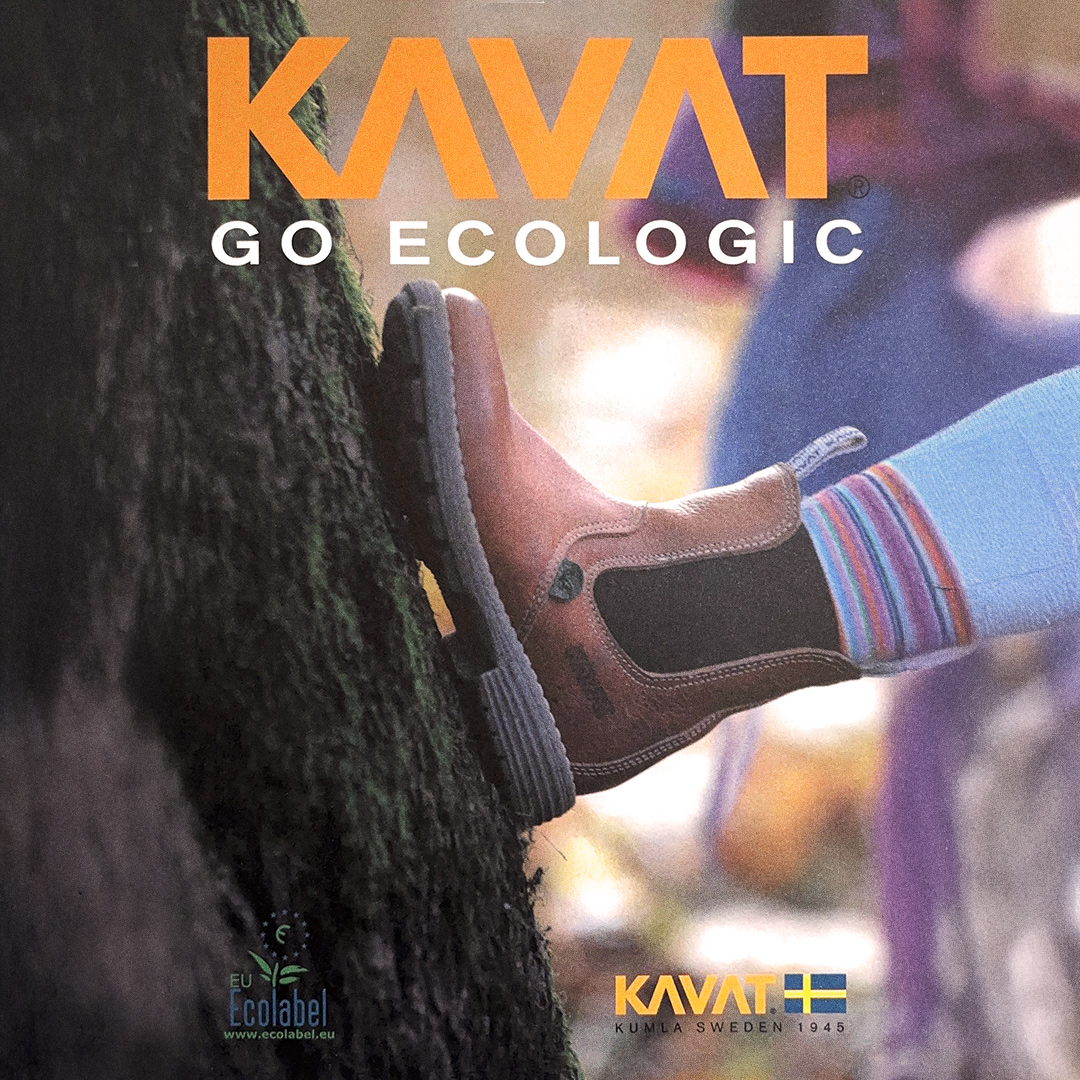History

From idea to icon.
Ragnar Karlsson
Ragnar Karlsson, the founder of Kavat, was born in 1911 and grew up in Blacksta, just outside Kumla. In 1926, at the young age of 15, he started working at C.A. Johansson’s Shoe Factory. His weekly wage was a modest 10 kronor and 56 öre, but the job left its mark—quite literally. After just two weeks, he accidentally cut off his thumb in a punching machine. “But that didn’t scare me off!” he recalled with a laugh in an interview from 1986.
After completing his military service and taking on a few short-term jobs, Ragnar began working at a small factory in Via, Kumla, where he learned the craft of shaping shoe lasts. The factory was owned by Sjöberg, who had recently acquired Ymer and its licenses from Örebro.

A modest beginning with big ambitions
1945
In 1945, Ragnar and Olof Johansson took a bold step and acquired Ymer, setting the stage for what would later become Kavat. The first products were simple slippers made from paper mill felt, decorated with rabbit fur, and sold to renowned leather and shoe wholesaler Lasse Burén.
By the late 1940s, the business had relocated to Köpmangatan 1, right in the heart of town. The factory spanned two floors, while the wholesale company KB Joel Andersson occupied the middle level. At this point, Ymer had 34 employees and focused on crafting children's sandals, slippers, and house shoes—laying the foundation for the company’s future success.

Expansion and generational shift
1960
In September 1959, the factory was hit by a major fire. Both finished shoes and those still in production were destroyed, with damages estimated at 350,000 kronor—a significant sum at the time. After the fire, Ragnar and his business partner Olle went their separate ways. Olle started making wooden clogs on Gamla Vägen before later moving to Ströms Skofabrik.
Ragnar, on the other hand, decided to invest in a new factory on Riksvägen, in a building that had previously housed Bertil Svidén’s Shoe Factory. Of Svidén’s 20 employees, 15 joined Ymer, increasing the workforce to 25 people. At the time, the hourly wage was 4 kronor, and annual production reached around 50,000 pairs of shoes—mainly Kalifornia sandals for Oscaria.
When Ymer moved to Riksvägen, Ragnar’s son, Bengt Carlsson, joined the company. In 1968, he took over the business, carrying on the family legacy.

"Lekis-shoes" become Kavat-shoes
1970
In the early 1970s, the shoe industry was undergoing major changes, and Bengt considered shutting down production. However, instead of closing the business, he chose to collaborate with Carlsson & Åqvist and began large-scale production of children's shoes. To strengthen the brand, Robert James, a salesman at Carlsson & Åqvist, suggested the name "Lekis-skor." Production quickly grew to 100,000 pairs per year, with leather sourced from Robert’s brother, Henry James.
By the mid-1970s, Ymer stopped selling through wholesalers and launched its own brand— Kavat. The name was inspired by the family’s dachshund, Kajsa Kavat. With the new brand, production increased to 150,000 pairs of shoes per year, which required larger facilities. In 1976, a new 1,200-square-meter factory was built, and by the winter of 1977, operations had moved in. In a way, things had come full circle — Kavat was now back in the area where Ragnar Karlsson first established Ymer.

50th Anniversary and continued expansion
1995
In 1995, Kavat celebrated its 50th anniversary while experiencing high demand and significant growth. The factory expanded by 600 square meters, and production increased to 230,000 pairs of shoes per year, with 10% being exported. Revenue grew from 20 to 30 million kronor. During this period, more employees were hired, including refugees from the Balkan War, contributing to both integration and a stable workforce of 55 people. At the same time, the factory was modernized with computer-controlled machines, allowing for quicker production changes. In 1997, Bengt and Birgitta retired, and the next generation took over – their sons Anders Folkö, Calle Karlsson, and Åke Folkö took Kavat into the future.


Sweden's leading shoe manufacturer
2000
As the 2000s began, Kavat stood as the only Swedish shoe factory producing shoes directly for the footwear industry. With a strong position in the domestic market, the company also started looking beyond its borders – expanding its export to both the Nordic countries and as far as Singapore. Production was in full swing, with the factory now making an impressive 1,100 pairs of shoes per day. To meet the growing demand, the business expanded with an additional 600 square meters of storage space, while a new, larger store opened its doors. By this time, Kavat was not only Sweden's sole children's shoe manufacturer – it was also a company on a steady growth trajectory. With a turnover of 35 million kronor and a growing international market, the foundation for future successes was firmly laid.

A new name and a green future
2007
The name Kavat has been familiar to customers for many years, but it wasn’t until 2007 that the company officially changed its name from Ymer AB to Skofabriken Kavat AB. That same year, Magnus Ericson joined as a co-owner alongside the three brothers Anders, Calle, and Åke. With strong ties to Kumla, Magnus comes from a family deeply rooted in shoemaking and the shoe industry. This marked a new chapter for Kavat, with sustainability taking the spotlight. The company began using vegetable-tanned leather from Tärnsjö Garveri, and four of their shoe models met the EU’s stringent environmental standards, earning the prestigious EU Eco-label. Around this time, the fourth generation of the family also joined the business. Anders' daughter, Caroline, began designing children’s shoes, Calle’s daughter, Pia, became the store manager in Kumla, and Åke’s daughter, Amanda, took charge of sales in Sweden. The family legacy continued, now with a strong focus on the future of footwear.

KAVAT: 70 years of craftmanship and growth
2015
In 2015, Kavat celebrated its 70th anniversary since Ragnar Karlsson founded Ymer, marking the occasion as an opportunity to reflect on the company’s growth, achievements, and steadily increasing revenue. By this point, production had reached 300,000 pairs of shoes per year, with 200,000 of them being produced in Bosnia. To commemorate the 70th anniversary, an exclusive line of adult shoes – 1945 by Kavat – was launched. This handcrafted collection consisted of 1,945 pairs, made in Kumla using vegetable-tanned leather from Tärnsjö Garveri. The collection was a tribute to Kavat’s history and its long-standing tradition of sustainable craftsmanship.

The world's first EU Ecolabel certified rubber boots
2024
For Kavat, sustainability has never been an afterthought – it’s the foundation the brand is built on.
In 2008, Kavat made history by becoming the first footwear manufacturer in the world to certify shoes with the EU Ecolabel. Sixteen years later, in 2024, they reached another significant milestone: the world’s first rubber boots to carry the EU’s official environmental label.
The models Grytgöl and Skur – two of Kavat’s beloved children’s boots – were the first to be certified. This was made possible by switching to BioPlastic, a more sustainable material partially derived from renewable sources like wood and food industry waste.
For Kavat, these milestones represent more than certifications. They reflect a long-standing commitment to creating better products – without compromising on function, durability, or the simple joy of play.

80 years of quality
2025
From a small shoe factory in Kumla to an internationally recognized brand – Kavat has truly come a long way since 1945. For 80 years, the company has successfully combined traditional craftsmanship with innovation, always with a strong focus on creating shoes that stand the test of time. This 80th anniversary is a mark of quality and proof that Kavat is a brand you can trust. Kavat shoes have been loved by customers and passed down through generations. Today, the company continues to grow and is constantly striving to improve its processes. Kavat is seeking new ways to reduce its environmental impact while delivering the high-quality, sustainable shoes the brand is known for. With a continued focus on innovation, expanding global presence, and the development of new technologies, Kavat aims to shape the footwear industry in the coming years. With the next generation at the helm, Kavat is evolving and looks forward to facing the challenges and opportunities of the future.
